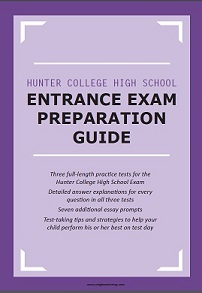NYC Students: Tips for Selecting a College
/Every NYC high school student knows how stressful junior and senior year can be. For the better part of both years, there is a relentless stream of responsibilities. NYC students must bolster their grades, making sure that the transcript sent out with each college application is ready to impress. Even beyond this final push toward a stellar GPA, the work keeps piling up. There are essays to write, SAT II subject tests (short standardized tests with a targeted focus) to study for, and the dreaded SAT (Scholastic Aptitude Test) or ACT (American College Testing Assessment), one of which is necessary for virtually every college application. These extra requirements, combined with the normal pressure of finishing high school, build up until the last "Submit Application" button gets clicked. From that point on, the certainty of graduating starts to set it, and students' thoughts shift from their last months in high school to how exciting the first months of college will be.
However, there is still one more obstacle: actually selecting a college. As soon as schools begin mailing congratulatory packets or granting access to online decisions, high school students face the final step of the college process. Depending on the results of these decisions, the spring can be the most difficult part of the process, but with some careful thought, it doesn't have to be so stressful. Here are some suggestions for narrowing down your college options:
If you got into your "dream" school:
Congratulations! All your test prep and hard work must have paid off. This is one of the easiest scenarios to handle. Go to your school's accepted students events and visit if you can, just to get a better sense of what your college experience will be like. Once you've made sure that you still love the school, let them know that you plan to attend.
If you got into a handful of schools that you like:
Visit as many schools as you can. Take the opportunity to talk to current college students at each school; they're friendly and will give you information that the tours and info sessions may not. If finances are a concern, wait for each school's financial aid package, which will follow shortly after you're notified of your acceptance. Once you have taken a second look at all the schools you are considering, it might be helpful to list the pros and cons of each: consider location, price, housing options, social scene, core vs. open curriculum, prestige. You can't make a bad choice with so many good options!
If you only have a few options, none of which you like:
If you have been waitlisted for schools you prefer, it is possible that spots could open up. However, waitlists are notoriously unreliable: a school can accept one hundred waitlisted students one year, then zero the next. Plan to attend one of the schools where you were accepted, but signal your interest in remaining on the waitlists for schools you prefer. If you do attend a school you do not particularly like, you can always reapply to other colleges after freshman year as a transfer student. Spending a year at a lower-ranked school and then transferring can save you money in the long run. If you have the option of pursuing a full-time internship or if you have another way to spend your time, consider taking a gap year, then reapplying for admission the following school year. While you will be a year behind your peers academically, you will have a whole year of real-world experience that may be invaluable in the job and internship search later on.
Tips for parents:
No matter where your teenager has been accepted, he or she has successfully navigated the NYC high school system and the stressful college process. Congratulations on helping them along the way! Once the college decisions come out, your teen may be facing some hard choices, and in your role as a parent, you have the unique ability to give advice about your own experience. Try to get a sense of how your teenager feels about each school by listing pros/cons, helping contact alumni, facilitating school visits when possible, and thinking with your teen about what he or she will benefit from most at each school. You're the most convenient sounding board they have! Ultimately, each person has to come to a decision about college alone, so once you have sid and done all that you can, support your teen in the choice he or she makes.

